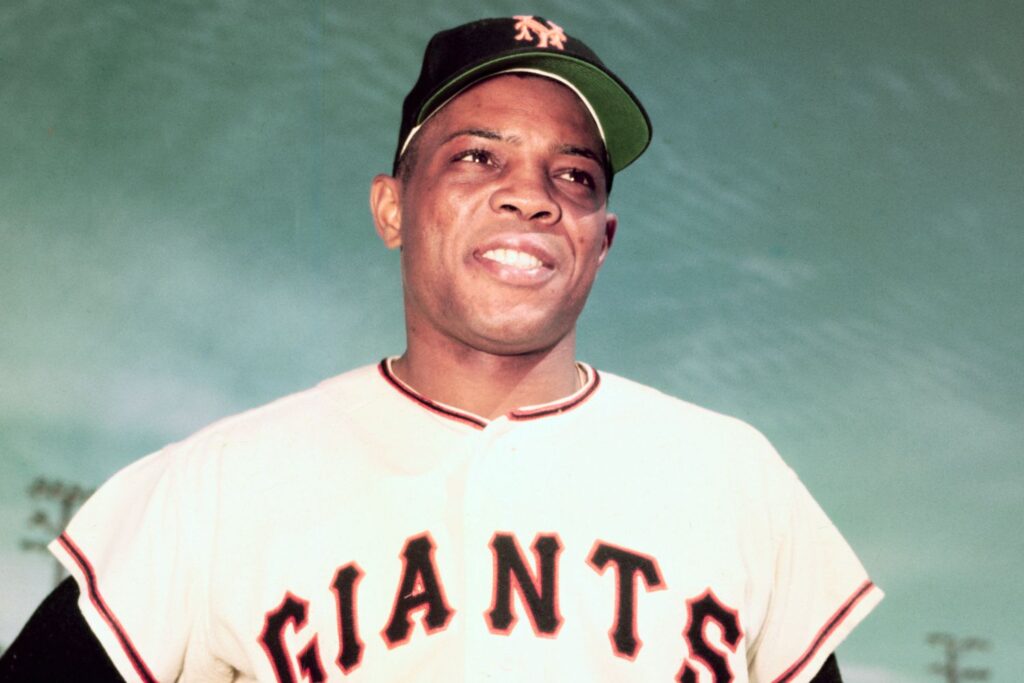June 18, 2024, marks a somber day in baseball history as Willie Mays, the legendary center fielder and one of the most iconic figures in Major League Baseball, passed away at the age of 93. Known affectionately as “The Say Hey Kid,” Mays’ career spanned over two decades, leaving an indelible mark on the sport and earning him a revered place among the all-time greats.

Early Life and Beginnings
Willie Howard Mays Jr. was born on May 6, 1931, in Westfield, Alabama. Growing up in a racially segregated South, Mays’ early life was shaped by the supportive yet challenging environment of a company town. His father, Cat Mays, was a skilled baseball player, and his mother, Annie Satterwhite, was a high school track star.
Mays’ athletic talent was evident from a young age. He played multiple sports in high school, excelling in football and basketball in addition to baseball. By 1948, at just 17, he was playing for the Birmingham Black Barons of the Negro American League, where he quickly became known for his prowess on the field.
Major League Career
Willie Mays’ Major League career began in earnest when he was signed by the New York Giants in 1950. After a stellar debut season in 1951, where he won the National League Rookie of the Year award, Mays’ trajectory was set for greatness. His career was momentarily interrupted by military service in 1952 and 1953, but he returned in 1954 to lead the Giants to a World Series title, earning the National League MVP award in the process.
Mays’ career with the Giants, which spanned their move from New York to San Francisco, was marked by numerous accolades and historic moments. He was a 24-time All-Star, won 12 Gold Glove Awards, and was twice named the National League MVP. His over-the-shoulder catch in Game 1 of the 1954 World Series remains one of the most iconic plays in baseball history.
A Five-Tool Player
Mays was often described as the quintessential five-tool player, excelling in hitting for average, hitting for power, base running, fielding, and throwing. He was the first player in the National League to achieve both 300 home runs and 300 stolen bases. His defensive skills were unparalleled, as evidenced by his 12 consecutive Gold Glove Awards from 1957 to 1968, setting a record for outfielders.
Throughout his career, Mays led the National League in home runs four times, stolen bases four times, and slugging percentage five times. His 660 career home runs ranked third all-time upon his retirement, and he remains among the top ten in several major statistical categories, including hits, runs batted in, and total bases.
Later Years and Legacy
After retiring from playing in 1973, Mays continued to influence the game. He served as a coach for the New York Mets and later worked as a special assistant to the president and general manager of the San Francisco Giants. His contributions to the sport were recognized with numerous honors, including induction into the Baseball Hall of Fame in 1979, his first year of eligibility. In 1999, he was named to the Major League Baseball All-Century Team, and in 2015, he received the Presidential Medal of Freedom.
Mays’ impact extended beyond his statistics and accolades. He was a trailblazer for African American athletes, helping to break down racial barriers in professional sports. His charisma, skill, and sportsmanship made him a beloved figure among fans and fellow players alike.
